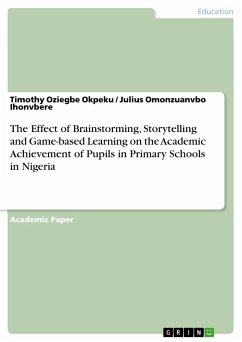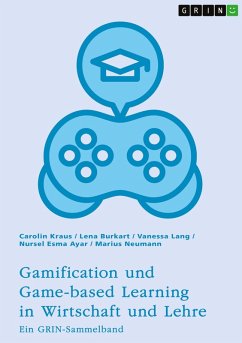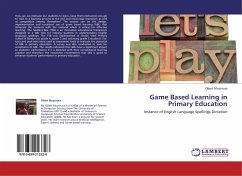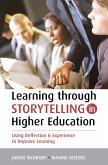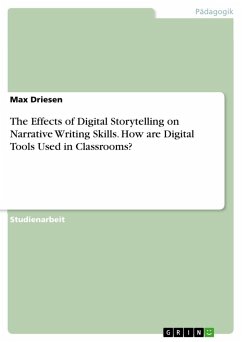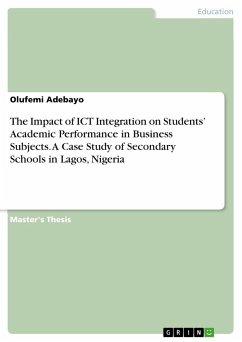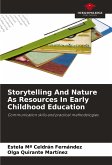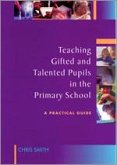Academic Paper from the year 2023 in the subject Pedagogy - Miscellaneous Topics, , language: English, abstract: The study examines the effect of brainstorming, storytelling, and game-based learning on the academic achievement of pupils in primary schools in Nigeria. The study employed a quasi-experimental non-equivalent posttest group design. Three intact classes were used for the study, which was made up of 109 pupils (that is, 52 pupils in the experimental group and 57 pupils in the control group) in the 2022/2023 academic year from the sixth grades in three randomly selected primary schools. The 52 pupils were randomly assigned to the three experimental groups (brainstorming, storytelling, and game-based learning). The 57 pupils from the second arms of the same class and school were assigned to the three control groups (conventional teaching method). 25 structured items were used as an instrument for data collection. The instrument was subjected to construct validity by the expert judge. Cronbach¿s Alpha reliability coefficient was employed and a reliability coefficient Alpha of .83 was obtained. Mean, standard deviation, and multiple regression analysis were used to analyze the collated data. According to the United Nations Children¿s Fund Assessment (2023), three out of four primary school pupils in Nigeria are poor in literacy and numeracy subjects representing 75 percent of the total number of school children in Nigeria. This poor learning crisis in Nigeria has made several children unable to read or solve simple math problems at the primary school level. This difficulty in learning has not only hindered children¿s opportunities to learn literacy and numerical skills but it has also advanced as one of the factors responsible for out-of-school children in Nigeria based on drop-out rate. Experts cite reasons for the underachievement of pupils in Nigeria schools to include poor instructional pedagogies and didactics, class size, teacher-students ratio, school supervision, poor communication, and poor teaching and learning materials. Despite the efforts to rebuild basic education in Nigeria, pupils¿ academic achievement in primary schools in Nigeria is still low in terms of pupil¿s learning outcomes. Reports from the five-year basic common entrance examination conducted in Edo State, Nigeria revealed the percentage scores of pupils that scored credit and above in the examination as follows; 59.2% in 2018, 65.3% in 2019, 48.7% in 2020, 68.6% in 2021, and 51.4% in 2022.
Bitte wählen Sie Ihr Anliegen aus.
Rechnungen
Retourenschein anfordern
Bestellstatus
Storno

